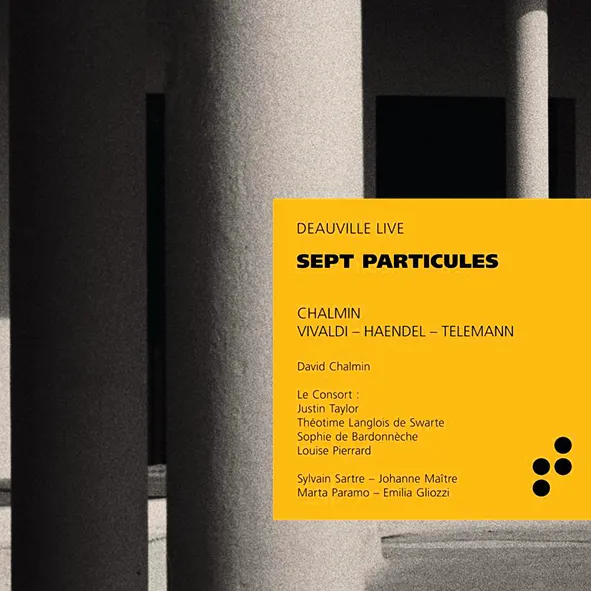
Sept Particules Chalmin Sept Particules; Handel Concerto for oboe and strings in D minor, HWV 316; Trio Sonata for viola and violin in B minor, HWV 386b; Telemann Concerto in E minor, TWV 52:e1; Vivaldi Concerto for Strings in D minor RV 129 (Madrigalesco) Le Consort/David Chalmin (electric guitar & vocals) B Records LBM014 62:47 mins
This live programme, with applause, stems from the 2018 Deauville Easter Festival, in northern France. Sept Particules, commissioned by the Festival, refers to the seven musicians who perform a seven movement piece, which sets out to create a connection between Baroque and contemporary music. The composer, David Chalmin, in his own words ‘was raised on Baroque music . . . At the age of 14, I discovered electric guitar and rock . . . I started to get interested in electronic instruments, such as the modular synthesizers I use in Sept Particules. Each particule reveals different influences, ranging from minimalist music (Particule 1) to various manifestations of Baroque, electronic, pop and ambient music.’
To help the listener understand the genesis of the particules, they are preceded by carefully chosen concertos by Vivaldi, Handel and Telemann, a movement by Vivaldi, and a trio sonata from Handel’s Op. 2. In this way we can see where the inspiration for the particules is coming from. The music is performed by Justin Taylor’s group, Le Consort, which embraces in a variety of configurations, organ and harpsichord, violins, viola da gamba, cello, flute, recorder, oboe and oboe d’amore. Additionally, Chalmin himself sings, plays guitar and provides electronics. The programme’s declared aim is to break down the barriers between the two opposing types of repertoire. Readers, I suspect, will react in widely differing ways, but most will enjoy Le Consort’s lively and stylish playing.
Nicholas Anderson